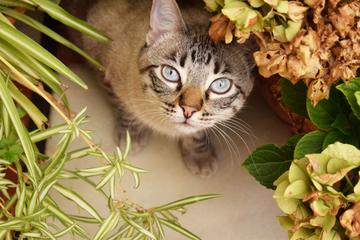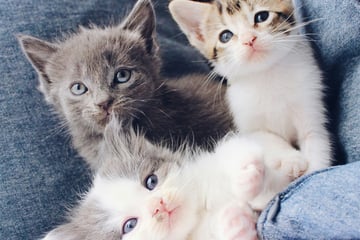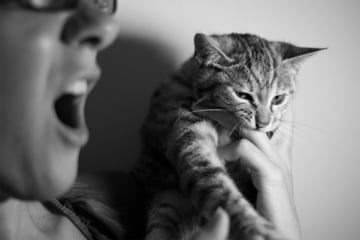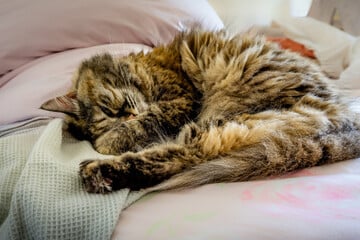Do cats get jealous?
It's hard to know what goes through a cat's mind, but aggressive or pouting behavior could be a sign of jealousy. As a result, a good cat owner should be able recognize and respond to a jealous cat.
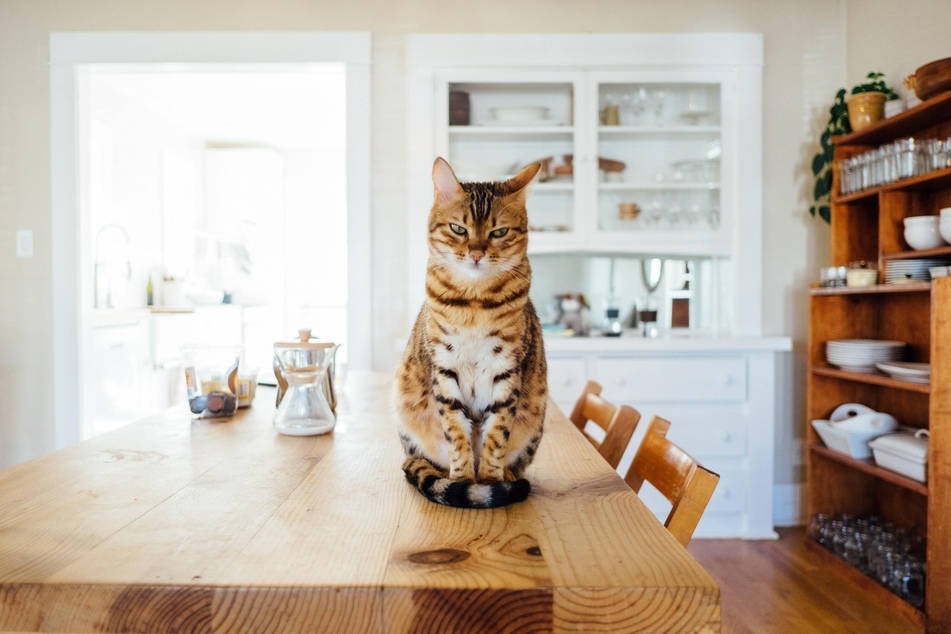
If your darling kitty has suddenly got very possessive and grumpy in the presence of certain family members or a new pet, owners will naturally wonder whether it all comes down to jealousy. It's a fair question, and one that's likely to cross the mind of every cat lover on the planet at some stage. So, do cats get jealous, or are we all overthinking it?
Can cats get jealous?
It is perfectly possible, and quite common, for your cat to be jealous. This can be caused by a variety of factors and is generally exhibited by changes in your feline friend's behavior. Jealous cats are often a bit more aggressive, constantly fighting for your attention, and increasingly grumpy. It can become increasingly serious as it carries on, so is something worth paying attention to.
Do cats get jealous of other cats?
Yes, it is very common for cats to get jealous other cats when a new kitty has entered the household. This especially goes when an older cat suddenly has to contend with the presence of a new and unrelated kitty. In such situations, fights can break out and your cats might not get on very well. Behaviors like these are usually a sign that your cat wants more attention from you.
Why do cats get jealous? Causes
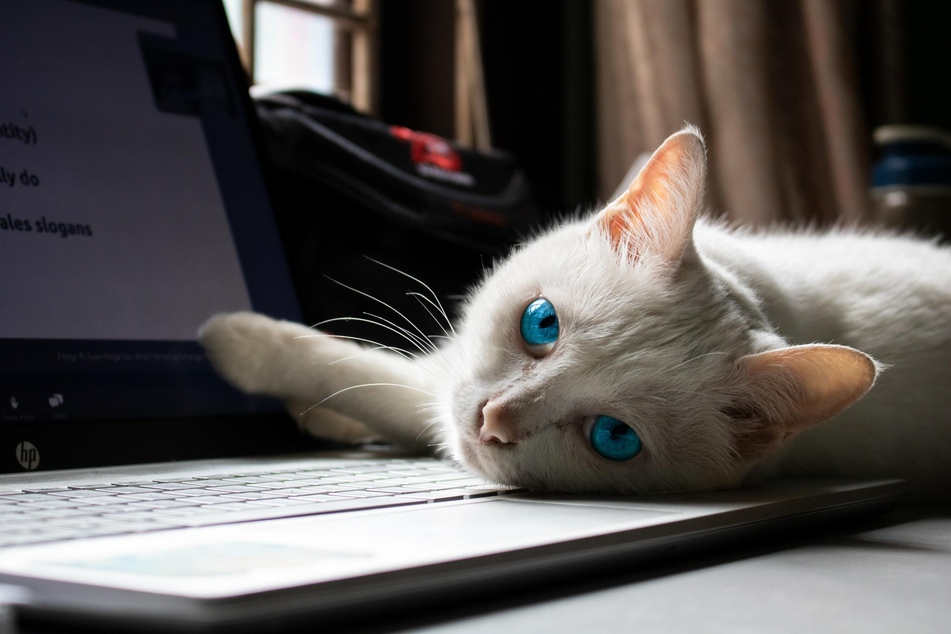
So what makes a feline friend go from cheerful to sulky? As with humans, there are a variety of triggers, but it can often have something to do with a feeling that they are not getting enough attention from their loving owner. This will cause a change in behavior, and is something to work on.
The most frequent cause of cat jealousy is usually a new pet in the home, but even a new life partner or a new baby can cause a great deal of stress and jealousy for a cat.
Cat jealousy is generally caused by a feeling that the newcomer is stealing attention from them. As a result, that newcomer doesn't even need to be a living thing - it could be a computer, television, phone, book, or something else entirely. This also explains why cats sometimes like to come and lie on your computer keyboard.
The most common causes of cat jealous are as follows:
- A new cat in the house
- Other pets, like dogs or reptiles
- A new life partner
- A new set of friends who are often around
- A new baby or child
- New hobbies and habits
Important: If your cat is getting increasingly anxious and worried, and seems overly jealous, it could also be the result of separation anxiety. In such a case, it's best to seek the advice of a veterinarian.
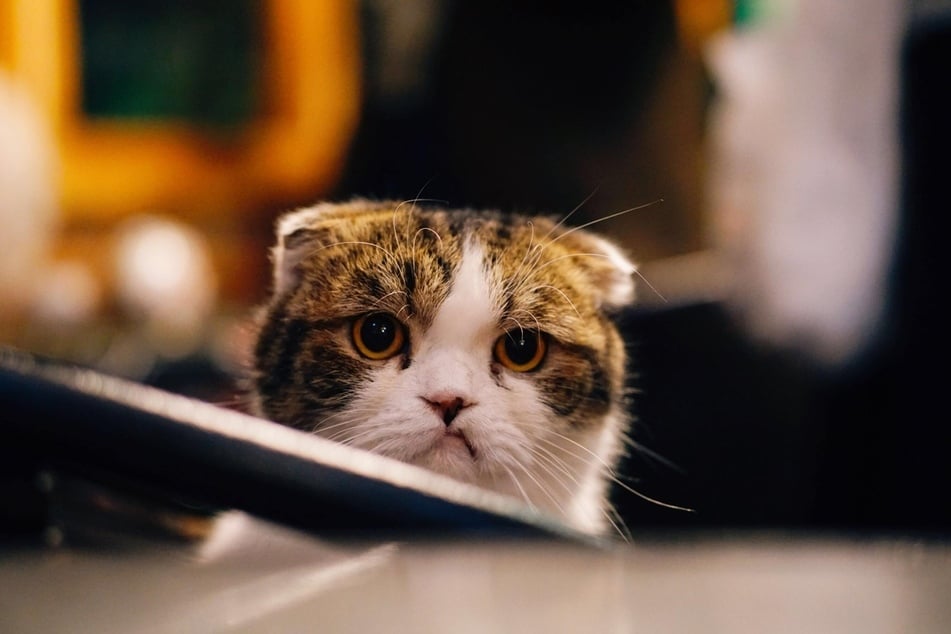
Symptoms of a jealous cat
Every cat expresses jealousy in its own way. In most cases, though, you'll notice a major change in the cat's behavior, particularly in regard to its temperament and personality. While some cats wear the jealousy on their sleeve, others become aggressive and take sneaky swipes - often at whatever has started taking up your attention.
Dealing with these fragile personalities can be hard. An introverted cat can be hard to notice when it is jealous, leading to long-term unhappiness, while an overly extroverted kitty can get quite violent and unpleasant. The first step to dealing with jealous cats, though, is by noticing it.
Here are the most common symptoms of cat jealousy:
- Destructive tendencies
- Aggressive behavior towards people and animals
- Decline in hygiene, urinating or defecating on objects
- Refusing to feed and weight loss
- Indifference
- Sudden intrusive behavior
- Sudden compulsive behavior
Keep this in mind, though: All the signs and symptoms of cat jealous can also indicate more serious disorders. As with any potential health issue, it's always best to get your cat checked up on by the vet.
What to do about cat jealousy: Fixes and preventions
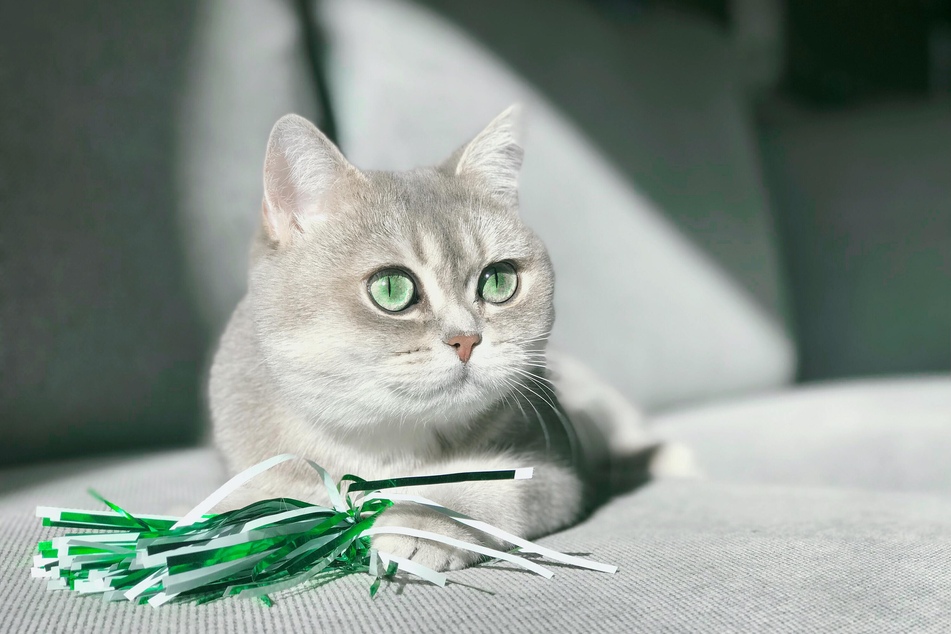
Ultimately, the best way to fix cat jealousy, or simply prevent it, is to make sure that you are spending plenty of time with your kind kitty even when a new pet, baby, or hobby has entered the household. This is especially important when the jealousy is caused by a new animal or human, as your kitty could get quite grumpy and aggressive.
It's perfectly normal for new housemates to need some time before they become buddies. If things still haven't improved after several weeks, try spending more time with your cat, and if this doesn't work, it's time to seek more professional help.
Patience, trust and training is the ultimate path to a good relationship between all animals and humans, and needs to be achieved via consistency and clear hierarchies. Entertainment and great cat games can also help, as they add value to cat-human relationships and help to reduce tension.
We would recommend these tips for preventing and reducing jealousy in cats:
- Make sure to set up plenty of comfortable and secluded sleeping spots
- Set up and provide of cat toys to keep your kitty entertained
- Keep your cat's feeding area and food bowl separate from any other animal
- Guarantee plenty of personal one-on-one time every day
- Take into account all the individual needs of each cat
- Enforce general rules equally between cats and make sure the house hierarchy is very clear
With the right preparation, you won't need to worry too much about cat jealousy. Just learn to recognize it and respond in kind - it'll all be okay, just give it some time.
Cover photo: Unsplash/Paul Hanaoka
